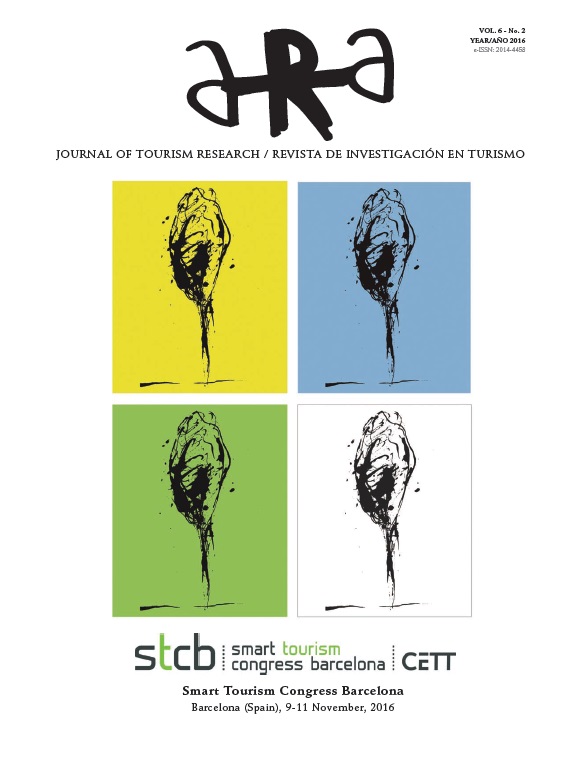From smart city to smart destination. The case of three Canadian cities
DOI:
https://doi.org/10.1344/ara.v6i2.19076Keywords:
smart city, smart destination, governance, stakeholdersAbstract
Several cities around the world are self-proclaimed "smart" by integrating, in varying degrees, new technologies in the different spheres of the city. Nevertheless, despite this effervescence around the smart city, the concept requires more conceptualization from the researchers. This is even more important when it comes time to distinguishing between smart city and smart destination. The relationship between these two concepts is blurred and the transition from the smart city to the smart destination is not automatic. This situation is explained by the fact that the intrinsic characteristics of their respective target populations, being the citizens and the tourists, are different. This article compares three Canadian cities in the province of Quebec with the aim of demonstrating that the realization of a smart destination project requires the adaptation of governance structure and the involvement of all the stakeholders and more particularly in tourism.Downloads
Published
2017-05-15
How to Cite
Khomsi, M. R., & Bédard Bedard, F. (2017). From smart city to smart destination. The case of three Canadian cities. Ara: Journal of Tourism Research, 6(2), 69–74. https://doi.org/10.1344/ara.v6i2.19076
Issue
Section
Articles
License
The authors who publish in ARA agree to the following terms:
- Authors retain copyright and grant the journal the right of first publication.
- Texts will be published under a Creative Commons Attribution License that allows others to share the work, provided they include an acknowledgement of the work’s authorship, its initial publication in this journal and the terms of the license.
- This material may not be used for commercial purposes.
- You may not distribute the modified material.
Attribution-NonCommercial-NoDerivatives 4.0 International (CC BY-NC-ND 4.0)














